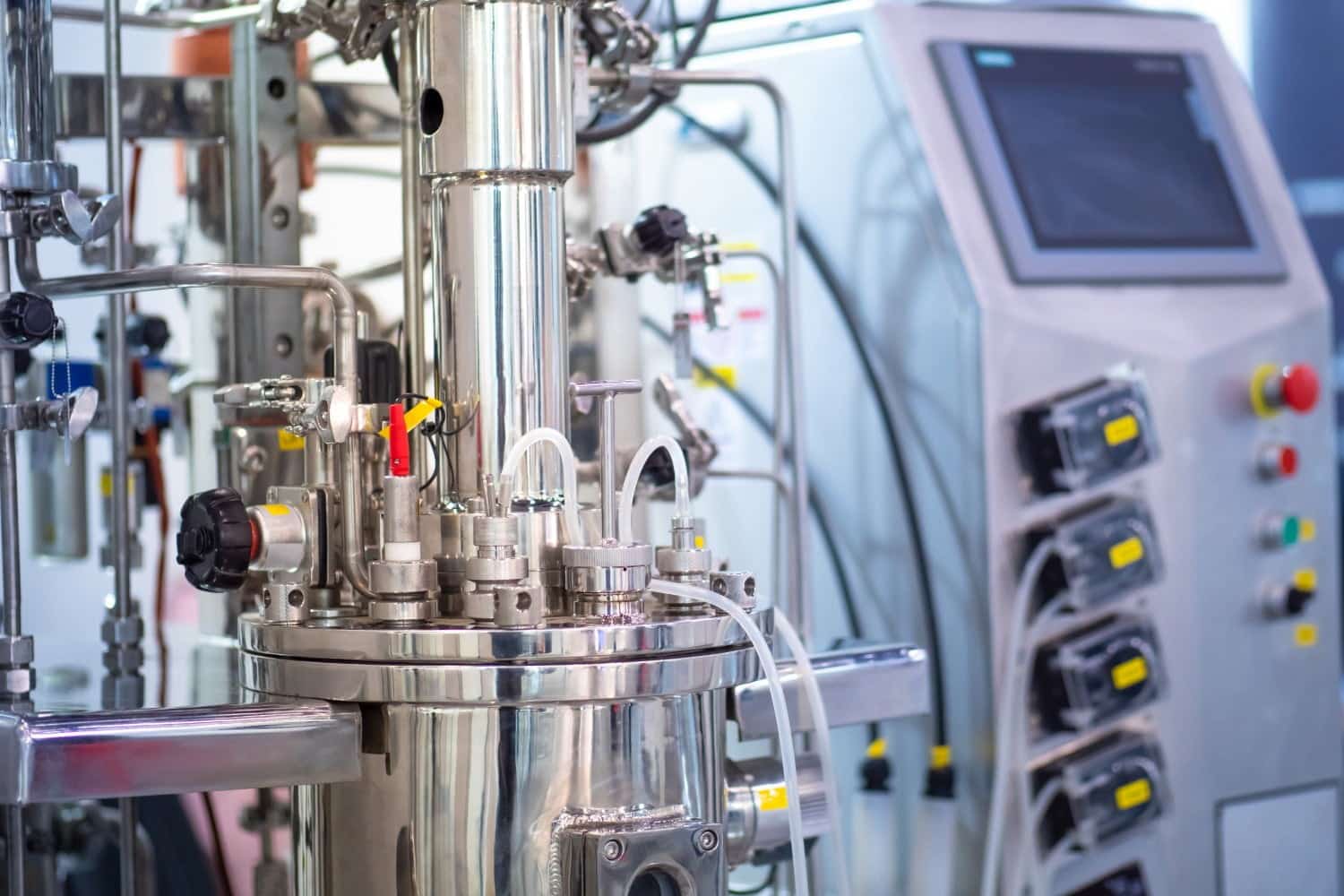Services: Isolation Services
Peptide Isolation
Recent developments in the modeling and synthesis of peptides have led to a resurgence in the exploration of natural products. Additionally, technologies, such as RiPP (ribosomally synthesized and post-translationally modified peptides), have increased the rate of development of novel, bioactive peptides. Consequently, the range of peptide isolation challenges.
Precisely controlling peptide fermentations efficiently produces the targeted structure. However, this requires significant optimization. Selectivity during exploratory fermentation is much lower; as a result, isolation of the target from these complex mixtures adds a layer of difficulty.
Many conventional purification techniques are tailored to either small molecules or proteins and don’t work well for peptides, which are somewhere in between. We have developed curated purification approaches, tailored to working with peptides and their unique properties.

Peptide Isolation Highlights
Isolation of peptides from synthetic sources is tricky enough due to their often highly polar or labile nature; moreover, separations can get even more complicated when they are from natural sources, like fermentations. Let Planta Analytica resolve your peptide isolation problems.
Adaptable to Your Workflow
We can accommodate your project, regardless of what state your material is in. Whether you supply a large volume of fermentation broth or a dried, crude extract, Planta Analytica can help you with your separation and isolation needs!
Application of Counter Current Chromatography
Counter Current Chromatography offers various approaches for the purification of peptides. One approach, referred to as pH-zone refining, exploits minor differences in pKas. Another approach is to use strongly buffered solvent systems to stabilize the phases and improve retention of highly polar peptides.
Unconventional Methods for Difficult Cases
Our scientists have developed novel separation approaches for peptides using unconventional applications of solid phases. Through unique modifications of mobile phases, highly polar peptides can be retained or solubility can be adjusted to improve loading capacity.
Frequently Asked Questions
What are the biggest challenges in peptide isolation?
Peptide isolation and purification certainly pose many challenges. (1) Side products produced during peptide synthesis must be removed to obtain pure peptides. (2) The impurities present in complex peptide mixtures often have similar physiochemical properties to the target peptide, necessitating the use of specialized analytical techniques, such as mass spectrometry. (3) Target peptides obtained from natural sources are present in extremely complex mixtures, which requires highly selective isolation techniques. (4) Optimization of parameters can often be time-consuming; not only can column parameters be altered, but mobile phase composition, pH, temperature, and flowrate may affect your selectivity and yields.
What is the most commonly used technique for peptide isolation and purification?
In our experience, the most common technique for peptide purification is reverse-phase high performance liquid chromatography (RP-HPLC). Other commonly used techniques include size-exclusion chromatography and ion-exchange chromatography.
What are the advantages to using liquid chromatography methods for peptide purification?
Liquid chromatography (LC) offers numerous advantages. (1) LC offers high-resolution separations, which allows for the isolation of individual peptides from complex mixtures. (2) LC methods also provide excellent reproducibility and scalability, making them suitable for both small-scale experiments and large-scale production.
What mobile phase is typically used for peptide isolation and purification in RP-HPLC?
The most common mobile phase is water and acetonitrile, with trifluoroacetic acid.
How do you dissolve peptides?
The polarity of a peptide mainly determines its solubility. The majority of peptides are soluble in water. However, some peptides do not completely dissolve. Acidic solutions dissolve basic peptides, while basic solutions dissolve acidic peptides. A small volume of an organic solvent (e.g., DMSO, DMF, acetonitrile, methanol, or isopropanol) may dissolve very hydrophobic peptides. Water is then utilized to dilute the solution up to the desired concentration.

